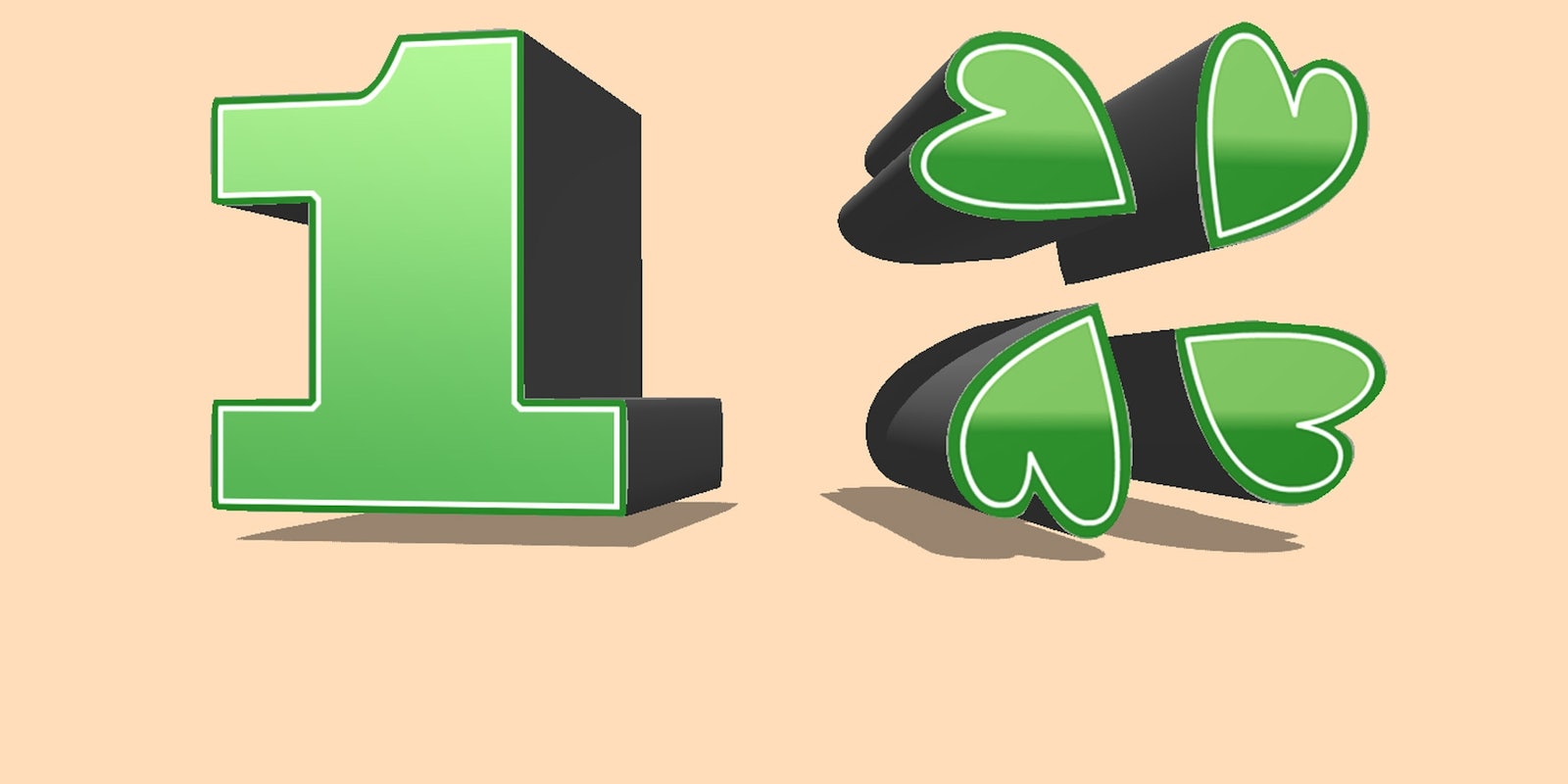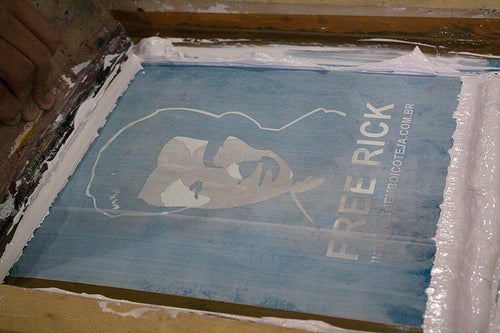There’s no way to tell exactly how much influence 4chan, which turned 10 this week, has had on our culture. The site has grown from a modest anime hub to a swarming Internet underground whose originality is unparalleled and whose capacity for viciousness is the stuff of Heisenberg legend. The corporations and individuals hawking LOLcat merch and quoting the Rules of the Internet would rather peel off their fingernails than admit they’re paying homage to a group of N-word-spewing nerds who once convinced a fellow user to have sex with a human skull (you’re welcome to Google that).
Besides, there’s no real 4chan archive. Jokes vanish as soon as they’re posted. You could never prove the connection. But it’s there, as true as the maxim that for everything online, there’s a porn version of it (more on that below). For some reason, 4chan jokes tend to snowball into surprisingly significant and deeply permanent customs, online and IRL. Here are just a few.
1) Internet justice
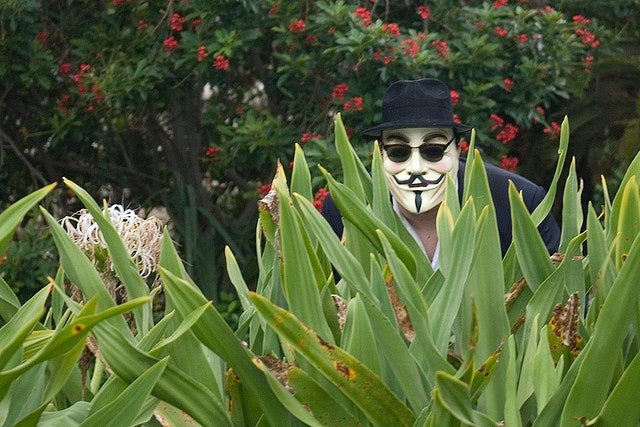
Photo via Anonymous9000/Flickr
Before Anonymous was a league of do-gooder hacktivists whose claim to fame was bringing the Steubenville rape case into the public eye, it was relegated to 4chan’s /b/ and better known as a troll cesspool that sent death threats to an 11-year-old, leaked Sarah Palin’s email, sent a swastika to the top of Google’s Hot Trends list, and started a rumor that Steve Jobs suffered a heart attack, which sent Apple’s stock price plummeting.
Anonymous is no longer a centralized prank squad, it’s a philosophy of Internet freedom and arbitrary social justice. (One common target recently: teens who abuse kittens on social media.) But Anonymous’s allure has been apparent since the early days of 4chan. Faceless masses are truly horrifying, and maybe you really do feel like Batman when you put on the Fawkes mask. But the real appeal—for a lot of young people especially—is the chance to be part of something bigger than yourself. And to experience far more power than any schlub with a keyboard is entitled to.
2) Ben Huh’s LOLcat empire
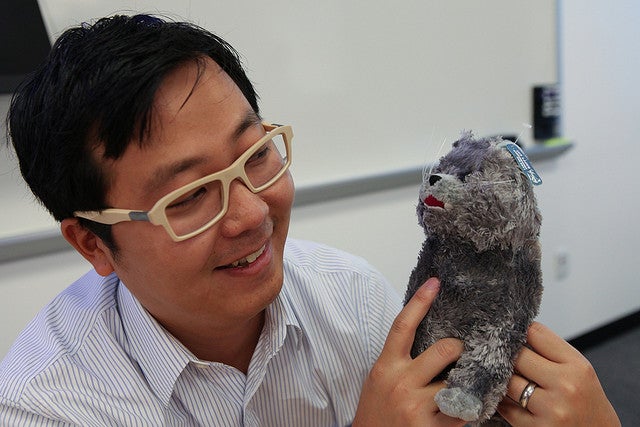
Photo by yodelanecdotal/Flickr
Cats just won’t go away. A grumpy-faced dwarf cat called Tard just made the cover of New York magazine, and Lil Bub is taking tours of the BuzzFeed office. They’re the de facto mascots of Internet culture, the most widely recognized meme—and they got this way because one Caturday in 2005, a 4chan user asked himself, if cats could speak English, would they be any good at it?
Today, the animals are sinister little harbingers of commodification. It’s impossible not to “like” an image of a derp-faced feline without filling the food bowl of the Cheezburger network, which mined 4chan for LOLcat images and turned its recycled .jpgs into a multimillion-dollar empire. And now we live in a world where Amazon sells a “#hilarious #party #game” called Say What You Meme.
But monetizing Internet culture without supporting the community that creates it will never end well. “We’ve seen Cheezburger peak,” 4chan founder Christopher Poole told the Daily Dot. “Businesses are good for a few years. At the end of the day, they’re not communities. People don’t give a damn where they get their funny pictures. There’s not a real culture. People are fickle. They are ready to hop to the next thing.”
“4chan gets angry at a company du jour every year,” Cheezburger CEO Ben Huh, above, told us. “Perhaps it’s a rite of passage.” Ironically, Huh is allergic to cats.
3) Bronies

Photo by rjrgmc28/Flickr
Adult male fans of the children’s TV show My Little Pony: Friendship Is Magic, and some of the most bizarre brohavior this side of butt-chugging. Being an adult male MLP “fan” can mean anything from putting Applejack on your desktop (like this redditor, who claims he was fired for it) to having a sexual relationship with a plush Rainbow Dash doll, or asking Reddit for advice after impregnating an imaginary pony. Props to the bronies for smashing gender stereotypes, but please, keep the pony sex dolls locked up.
4) Institutionalized misogyny
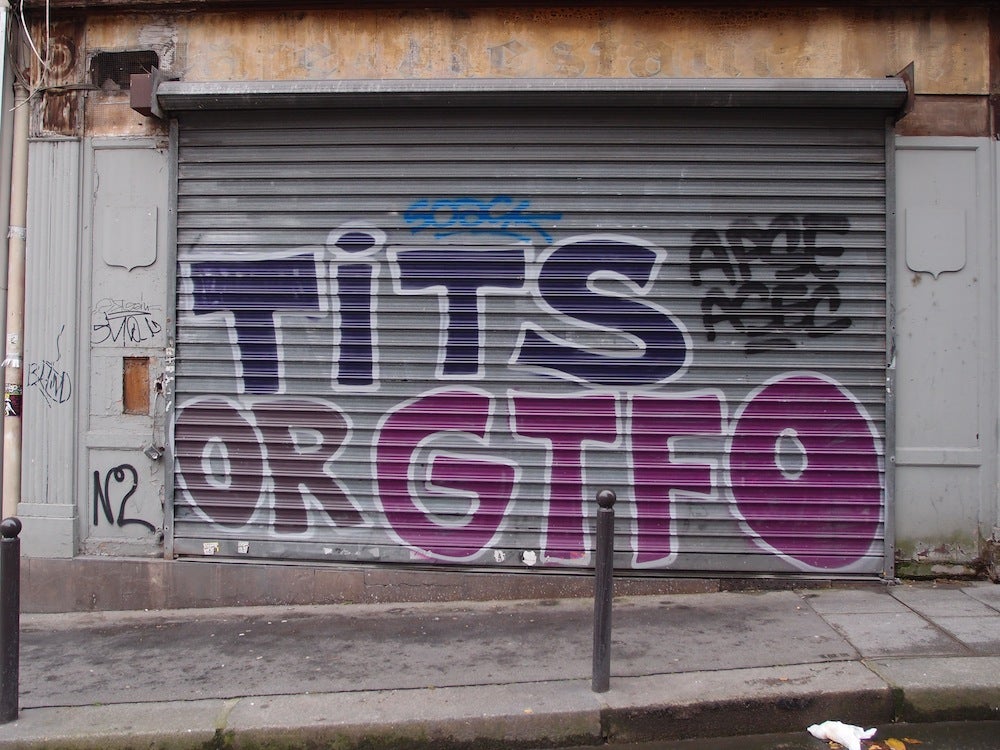
Photo via o_0/Flickr
Once upon a time, a group of dudes on the Internet bonded over how they were afraid of talking to women. “Don’t you wish guys could have a place all to ourselves?” asked one. “Why not the Internet?” answered another. They high-fived and decided once and for all that this Internet was a place that would be for people with penises only. This idea the men shared made them feel powerful. They fapped together.
But there was one problem, they realized. The men enjoyed looking at naked breasts, and they had ostracized people with breasts. So they compromised, and told women that in order to enter the Internet, they had to humiliate themselves by showing their breasts to strangers. If women failed to comply, they would be banned. This is how 4chan created its own self-perpetuating myth: There are no girls on the Internet. And this is why, 10 years later, shit like this, this, this, this, this, and this keeps happening.
5) The Rules of the Internet
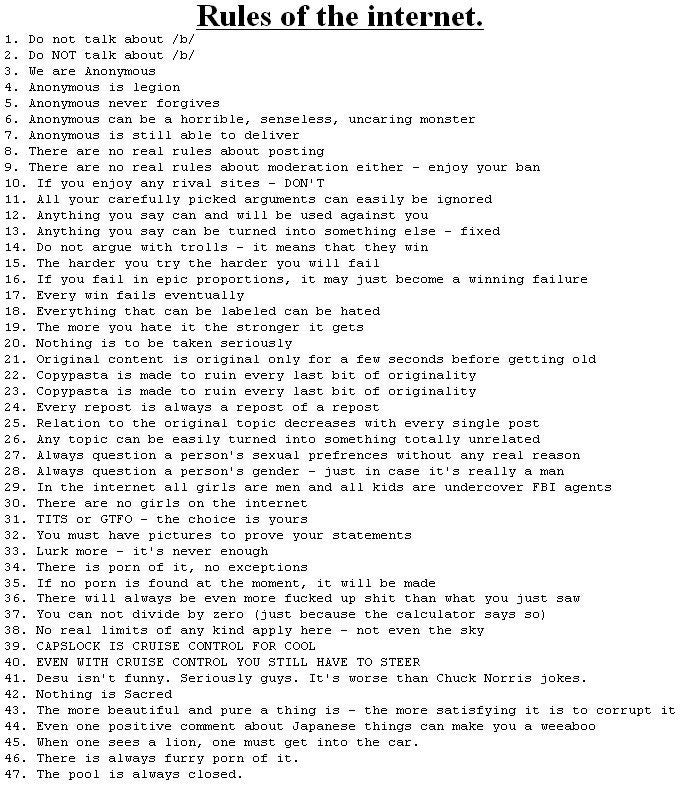
The Rules of the Internet are real. Most of them have to do with being on 4chan, but others have slipped into the mainstream. Rule 34, for example, states that if it exists, there is porn of it. This rule was proven time and time again until it became a meme, and now it’s so ubiquitous that porn production companies are getting all meta and making meme-themed porn (NSFW) with Tumblr favorite James Deen.
Then there’s Rule 63, which insists that for every gendered meme, there’s an opposite-gendered version of it, a Derpina for every Derp. You might not know it by name, but 63 persists on Tumblr and Pinterest and other spaces where bro humor isn’t the norm. But it’s not just lady versions of man things and vice versa—it’s subversive, patriarchy-smashing gender anarchy, like the Hawkeye Initiative, or the slew of “Blurred Lines” parodies on YouTube.
6) Rage comics
Photo by yiie/Flickr
These terrible faces were funny once, long ago, before they landed on T-shirts sold in Hot Topic. Actually, they’re only as old as 2008. Rage Guy, the Rhodesian Man of poorly drawn stick figures, first appeared in a four-panel comic about pooping. The trend spread to Reddit, where the F7U12 (read: FFFFFFFUUUUUUUUUUUU) forum took off. Fans eventually added a full cast of characters.
Once rage comics were out of 4chan’s hands, /b/ promptly produced a set of cartoons lampooning the originals in a thread called “Draw trollface from memory.”
7) Internet theme days
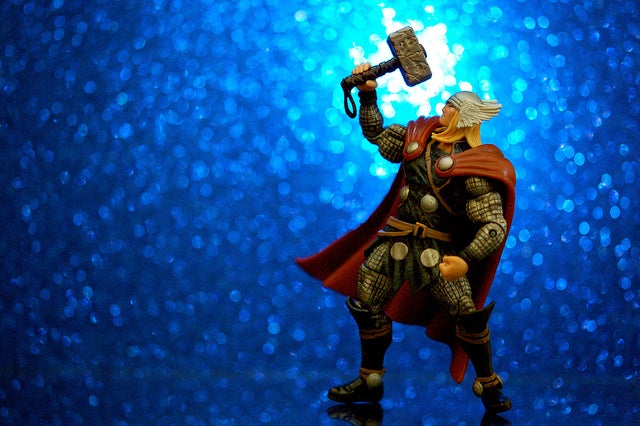
Photo by JD Hancock/Flickr
Throwback Thursday. Follow Friday. This sounds familiar, right? Giving days of the week different themes and activities started on /b/, where LOLcats became a Saturday tradition. On Monday (or Bunday), rabbits multiplied across the board like, well, rabbits. Caturday, of course, was a response to Furry Friday, which was devoted to people having sex in animal suits.
Let’s hope the wonderful Thorsday (see above) is never forgotten.
8) The Rickroll
Photo by marcogomes/Flickr
The Rickroll—a classic bait-and-switch gag, redirecting random links to a video of Rick Astley’s “Never Gonna Give You Up”—is still so popular, it made it to Apple’s iOS 7 support page.
“Rickrolling will never go away,” writes Amanda Brennan at Know Your Meme. “It’s something that’s so ingrained in Internet culture, I don’t think it will ever stop happening or being funny. It’s a cornerstone, one of those rites of passage.”
9) The death of online polling
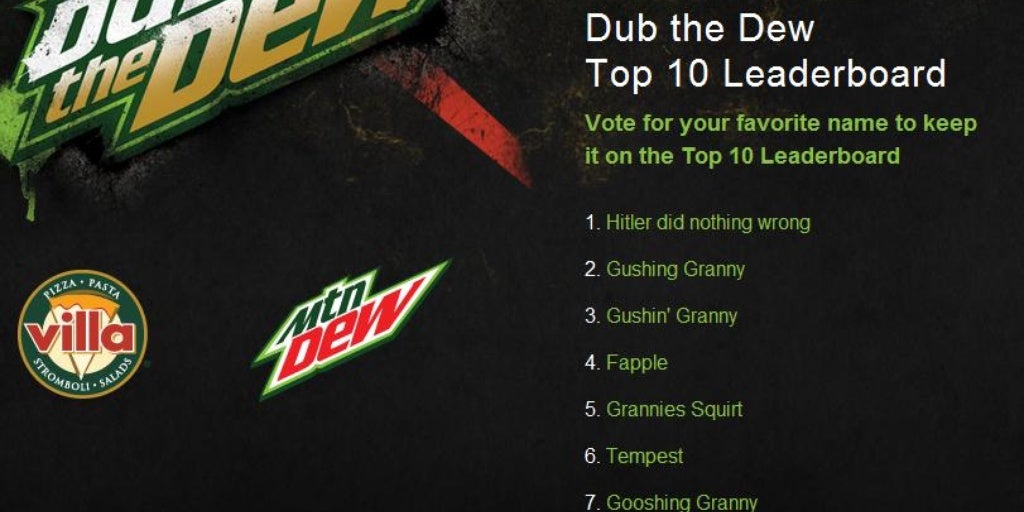
All Mountain Dew wanted was to increase brand awareness and sell some goddamn soda. What it got was a crowdfunded new flavor called Hitler Did Nothing Wrong—or Fapple, depending on when you saw the poll. 4chan sent Taylor Swift to sing at a school for the deaf, then rigged a contest so a “fat old creep” named Charles could meet her. In 2012, TIME magazine’s Person of the Year poll fell victim to 4chan’s vote-rigging, which sent Kim Jong-un to the top spot. In 2009, after a 4chan campaign, TIME‘s world’s most influential person prize went to Christopher Poole. The editors kept moot on the list. He’d proven his influence, and he hadn’t lifted a finger.
Online polling is a joke. Serious organizations do it anyway, as if they’re asking the Internet to screw with them. Hell, it’s always good publicity—even if you end up drinking something called Gushin’ Granny.
10) The “Internet Hate Machine”
Photo hansvandenberg30/Flickr
Anonymous transformed from a neighborhood gang of rock-throwing 13-year-olds into a serious social movement, but its legacy remained: The Internet was now a place where you could hate, and hate freely, and it didn’t matter what you were hating as long as the hate was cased in a hardened layer of nihilism and irony and elitist pseudo-intellectualism. On 4chan, the hate speech, like the shock porn, acts as a filter that weeds out anyone who still cares—about propriety, decency, morality, inclusivity, or just not calling people the F-word—and leaves the site relatively impenetrable to new users. On 4chan, the hateful are the enlightened. Even the “white knights” hate something.
Since 2003, the 4chan community has given the Internet its mascots, its language, its symbols, its customs, its calendar, and most of all, its thick skin. It’s done so at the cost of excluding just about everyone from the inner circle. The rest of the Internet is left with a lot to interpret, reject, and pass along to the next generation of haters. Maybe it doesn’t matter if we know where these things came from.
Illustration by Jason Reed
